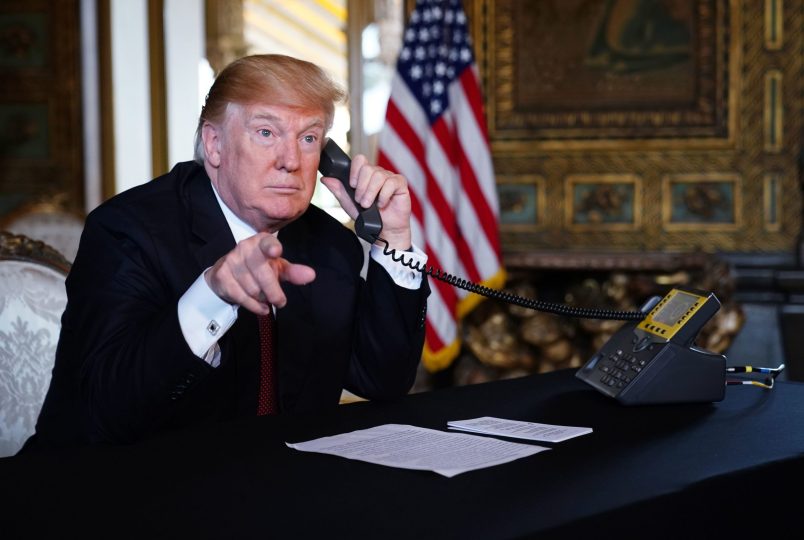With a highly dangerous situation unfolding between Russia and Ukraine over the weekend, it’s important to return to a basic point about President Trump and the danger he represents to the United States. This is as relevant to the crisis in relations with Saudi Arabia as it is with Russia and Ukraine.
With Saudi Arabia, we hear about a juxtaposition between American values and a narrower definition of American interests. But that’s not really the issue we’re wrestling with, though it is an important one in itself. Trump comically overstates US dependence on Saudi Arabia for US jobs. More importantly, Saudi Arabia has much less hold over global energy markets than it did in the past. But even with all that, the US relationship with Saudi Arabia is far too complex and embedded to be radically upended even by one egregious incident like this.
Similarly, with Russia, we hear discussions about whether Trump is too pro-Russia or pursuing US national interests. But again, this isn’t really the issue. We don’t want to take a reflexively hostile or militant stance in this conflict between Russia and Ukraine. (That applies across the board with Russia, an aggressive but fundamentally declining power.) The problem in both cases is that Trump appears to be pursuing some definition of his own personal interests over national interests. It’s not always clear just what that personal interest is, whether it is a narrow financial interest or some kind of threat-influence or whether he’s just been buttered up by the strongman in question. But it makes the conduct of US policy almost impossible to predict or trust.
With Russia, we have a President who is in some sense owned or dominated by the President of Russia. At the same time, the President has a national security team made up of more traditionally Republican Russia hawks and people temperamentally and ideologically inclined toward more confrontational approaches. That’s not a great recipe for good policy making. More importantly, it’s a great way to produce catastrophic misunderstandings between the countries in question.
With Saudi Arabia, Trump’s obsequiousness and toadying obscures the fact that no President would or would be in a position to cut ties with Saudi Arabia over Khashoggi’s murder. The country needs a President to pursue a foreign policy not only because the country needs a foreign policy (obvious) but because it needs a set of comprehensible strategies and policies that public discussion can react to and pivot off of. Not everyone agreed with President Obama’s policies toward the Gulf monarchies and Iran. But outside of the conspiracy theory fever swamps, everybody understood that a set of policy assumptions and priorities were behind it. The same applies to … say, President Bush’s policy toward North Korea in the early aughts. With President Trump, on most fronts we have put up claims (half a trillion in investment from Saudi Arabia that can’t be squandered!!!) that simply do not match with the actions.
As a country we remain in a state of shadow paralysis, not even able to adequately discuss or devise responses to critical foreign policy because the President’s actions are opaque and almost certainly corrupt.






